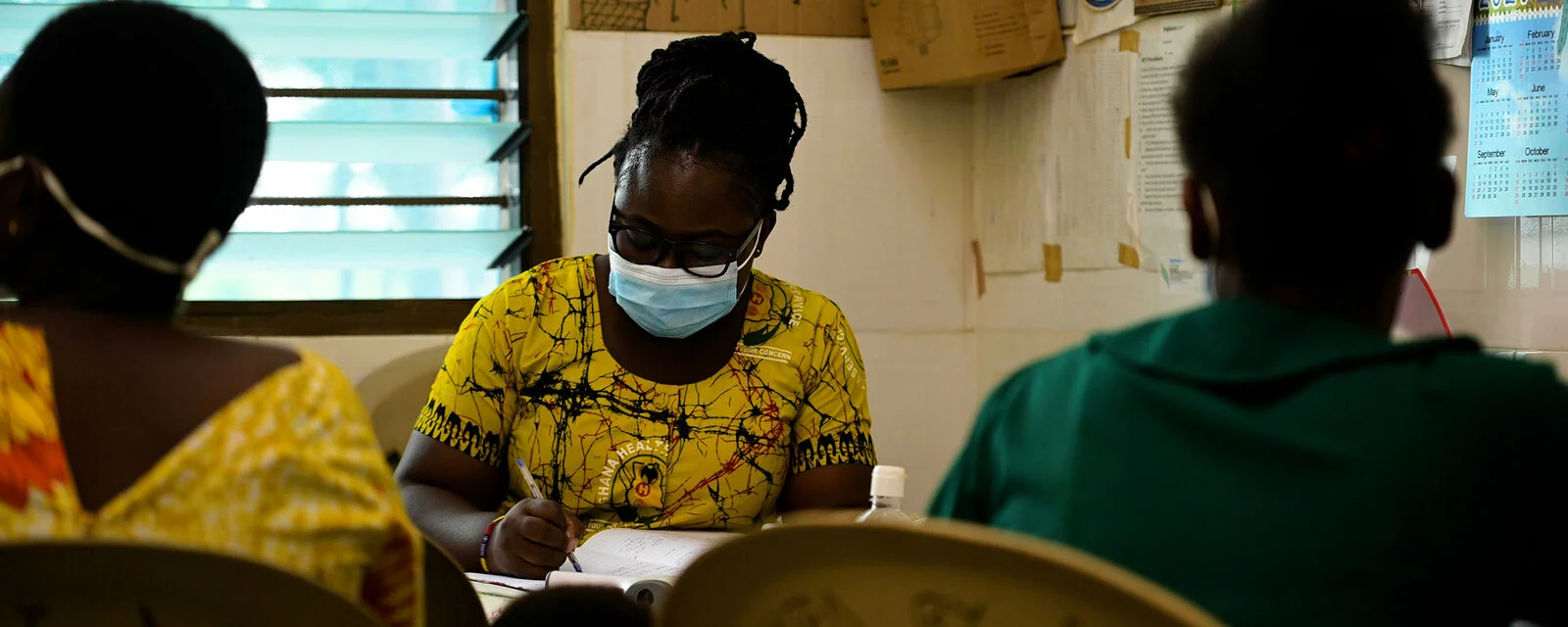Piped Connection to Ghana Health Center Improves Patient Care
Esther Amoasi and Portia Inkum Addo are nurses at the CHPS Compound in Volivo, a community of three thousand people in the Lake Volta region of Ghana.
Before Safe Water Network installed a direct piped connection to this health center, the staff had to walk two hundred meters (approximately two football fields) to the local borehole well to fetch water for the daily needs of the clinic. Not only was the water at the borehole unsafe, but the staff also had to manually pump the water into buckets and bowls and then haul it back to the clinic. Sometimes the borehole pump was broken, while at other times the well dried up because it was too hot. When these things happened, they would have to walk another two kilometers to the river to fetch water.
“If we went to the river,” Esther says, “that meant we might be gone for hours, and our patients would have to wait, regardless of the ailments.”
Portia added, “We had to ration water and often we’d run out by the afternoon.”
The direct piped connection now installed at the health center means safe water is available on-site at all times. Now staff do not waste time gathering water each day and they can focus their attention on patients. The piped connection also means they can keep the facility clean and everyone there can easily wash their hands.
When COVID arrived in Ghana, having a direct water connection at the clinic made a big difference to patient care. “Before the water connection,” Esther says, “we could only clean the clinic every two or three days. Now we clean the facility every day.”
But COVID still posed challenges. “It was not easy,” Portia says, “because many people didn’t believe COVID was real. People didn’t want to wash their hands or wear masks.”
Not having to fetch water meant Esther and Portia had more time to educate their patients, and they were able to convince them of the importance of handwashing to prevent the spread of COVID.
Safe Water Network continues to expand the piped connection program to households, health clinics, schools, and businesses. The increased reliability and convenience of such connections free up time for people, especially women and children, to live more full and healthy lives.
